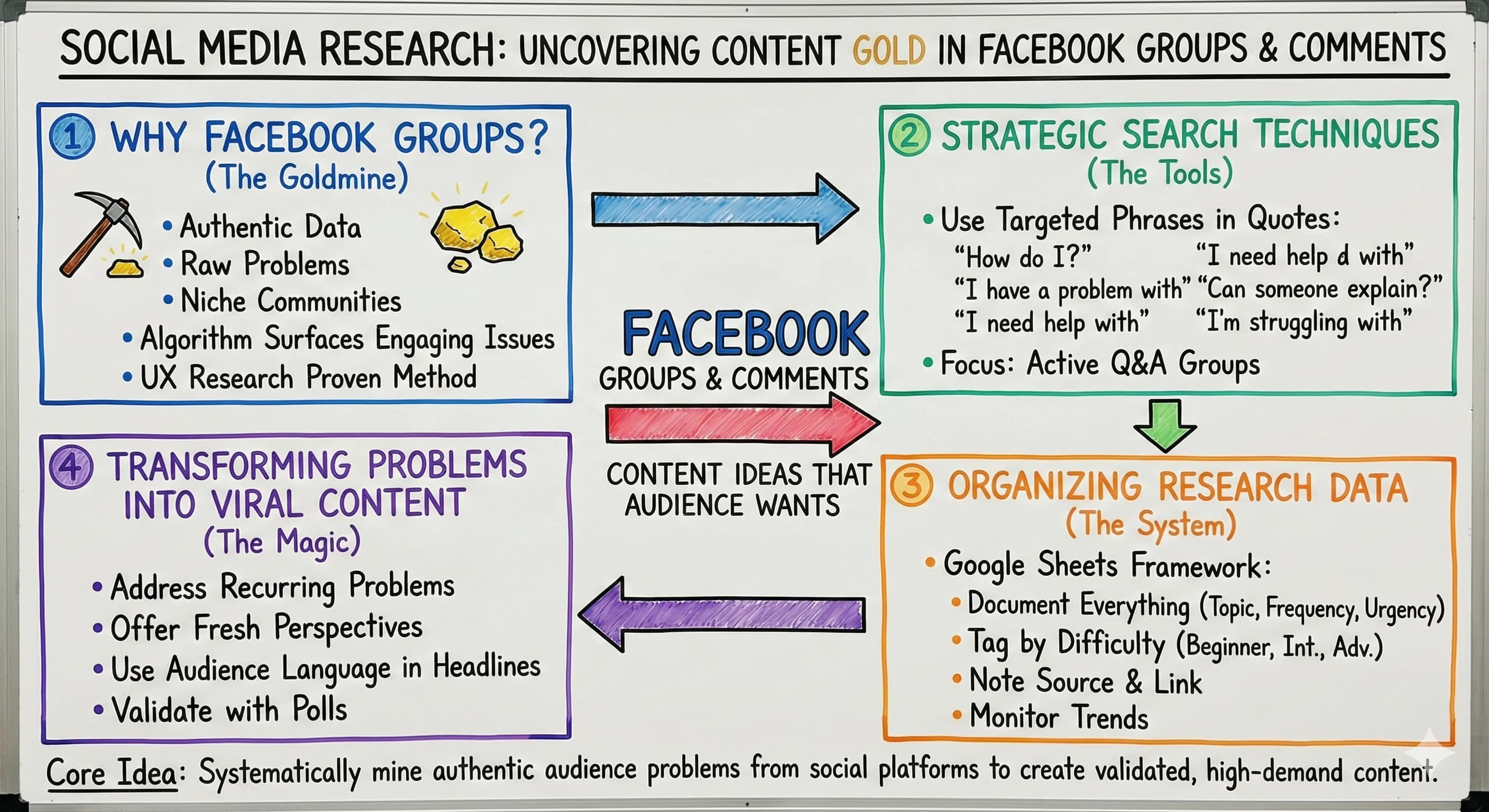How to Use Social Media Research to Uncover Content Gold Hidden in Facebook Groups
Learn proven techniques to systematically research Facebook groups and creator comments to uncover content ideas that your audience actually wants to consume.
•5 min read
Details

Loading content...

